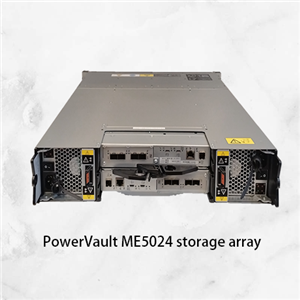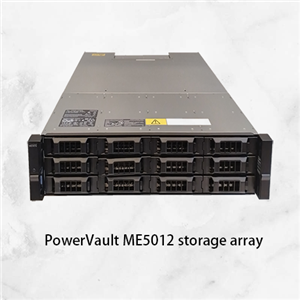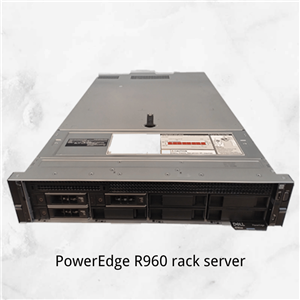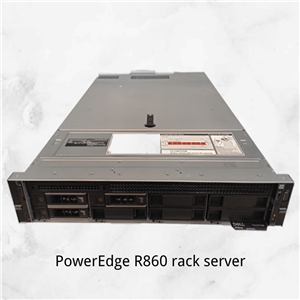Countering the 34% tariff! CPU, GPU and electronic products surge
Recently, the United States has launched an unprecedented indiscriminate tariff attack in human history. Faced with the aggressive United States, China has officially announced countermeasures during the holiday, with a total of three specific measures:
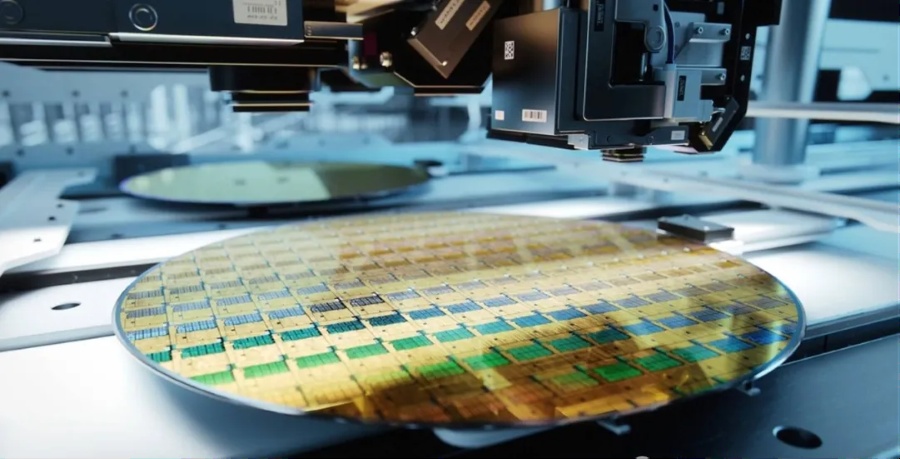
1、 An additional 34% tariff will be imposed on all imported goods originating in the United States on top of the current applicable tariff rate.
2、 The current bonded and tax reduction policies remain unchanged, and the additional tariffs imposed this time will not be reduced.
3、 Goods that have been shipped from the place of origin before 12:01 on April 10, 2025 and imported between 12:01 on April 10, 2025 and 24:00 on May 13, 2025, will not be subject to the additional tariffs specified in this announcement.
So there has been news that many electronic products, represented by CPUs and GPUs, are about to soar. Is this really the case?
The concept of origin needs to be clarified
PC players and consumer electronics users are concerned about the mention of "all imported goods originating from the United States". Does this mean that chips, especially CPUs, GPUs, as well as smartphones, computers, routers, etc., are within the scope of import taxation. The common American chips that PC players pay attention to include Intel and AMD for the CPU part; The mobile part is Qualcomm's SOC; The routing part includes Qualcomm and Broadcom; The GPU part includes Intel, NVIDIA, and AMD. Essentially, they are all products of American companies that are not fake, but due to the territorial principle in trade rules, it is likely that they are not 100% pure blood made in the United States.
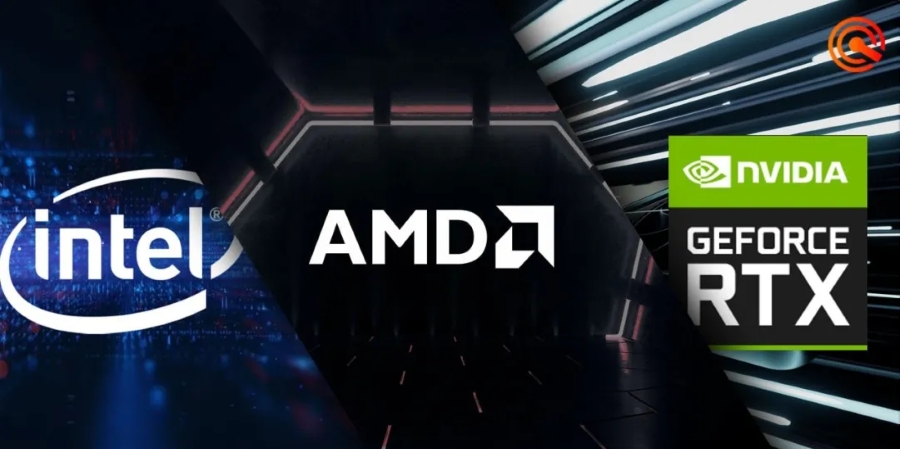
Before that, let's first understand the current form of technology companies, especially semiconductor companies - the vast majority of semiconductor companies are fabless semiconductor companies, engaged in circuit design for hardware chips, which are then manufactured by wafer foundries and responsible for sales. Due to the extremely high cost of semiconductor device manufacturing, separating the design and manufacturing of the integrated circuit industry allows fabless semiconductor companies to focus their energy and costs on market research and circuit design. Related to us here are NVIDIA, Intel, AMD (CPU, GPU, etc.), Texas Instruments (IC devices, etc.), Qualcomm (mobile SOC, routers), Broadcom (routing, communication, etc.), Micron Micron Technology (memory, storage chips), all of which are American companies.
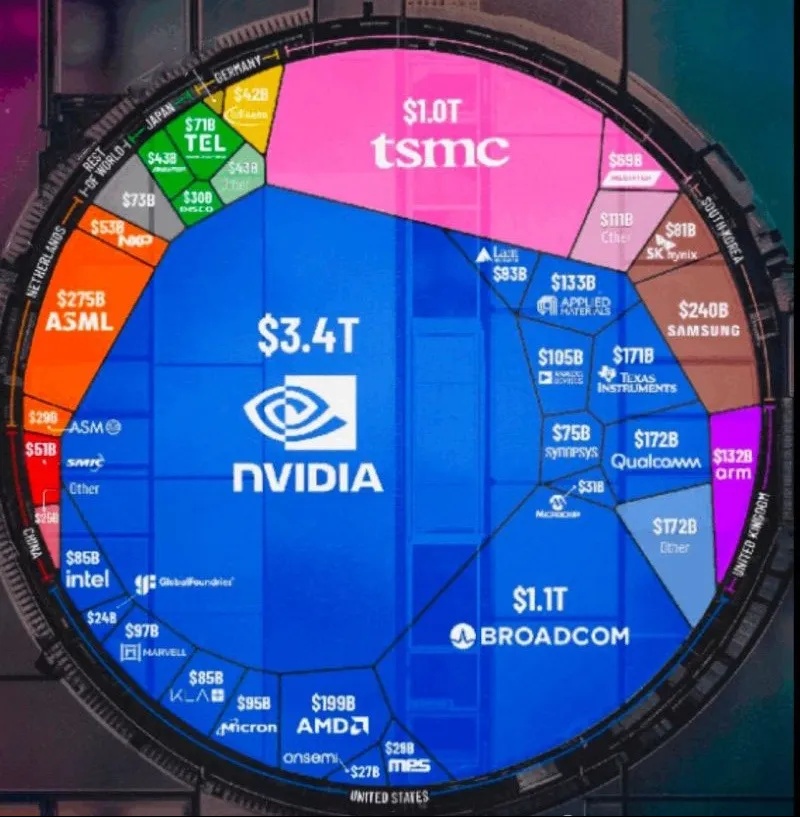
Non US companies include Loongson, Feiteng, Kunpeng, Haiguang, Shenwei, Zhaoxin (CPU), Molex Threads (GPU), Changjiang Storage (Flash Chip), Changxin Storage (Memory Chip), Samsung (Mobile SOC, etc.), MediaTek (Mobile SOC, Set Top Box SOC, etc.), Realtek Semiconductors (IC devices, etc.), and so on.
Companies specializing in wafer foundry can simultaneously manufacture and produce for multiple fabless semiconductor companies, maximizing the utilization of their production lines, and investing capital and operations in expensive wafer fabs, including TSMC, Samsung, SMIC, UMC, Gexin, Huahong, Gaota Semiconductor, World Advanced, TSMC, Hefei Jinghe, etc. - none of these are American companies, but there are American holding companies.
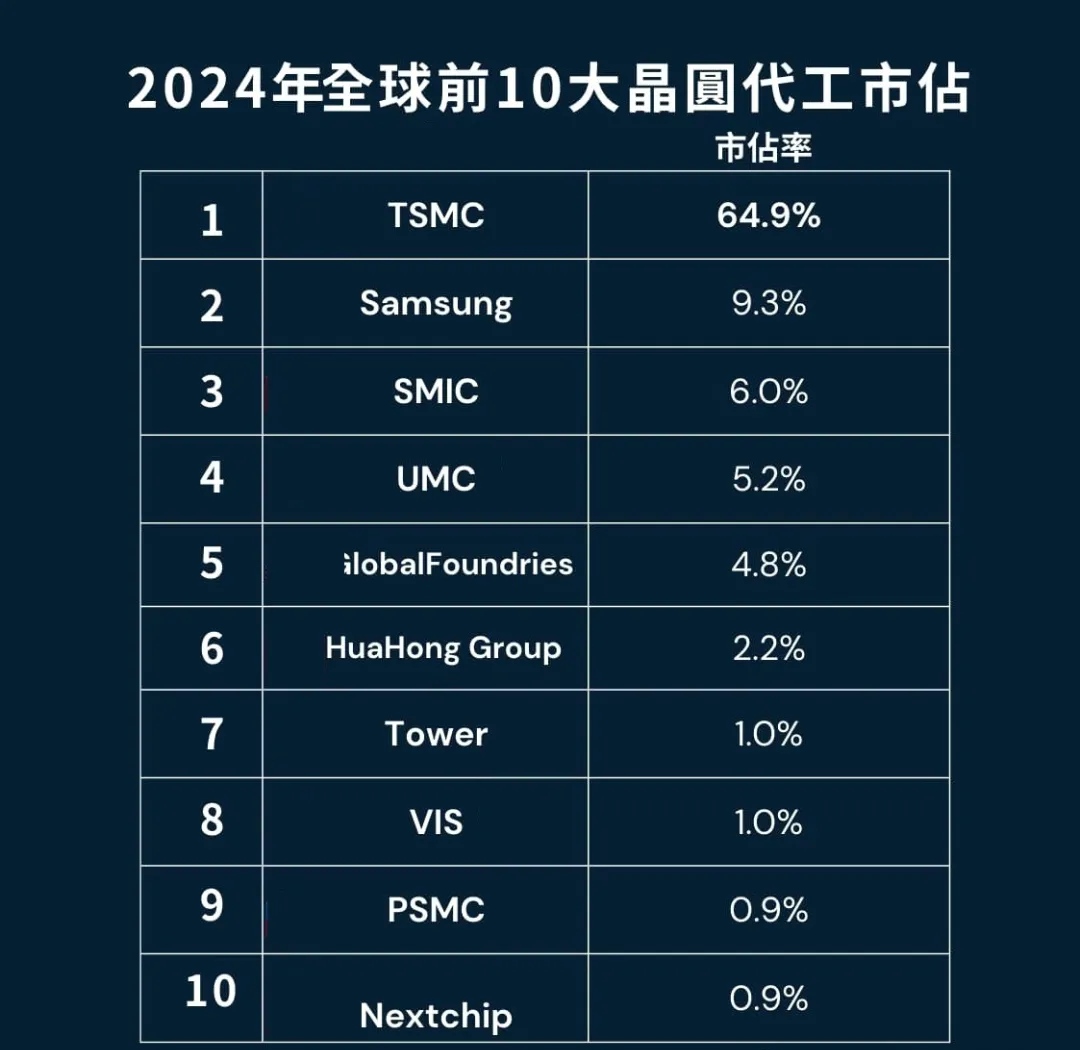
On the other hand, it is called "Integrated Device Manufacturing" (IDM), which means that a company handles the entire process from design, manufacturing to sales, and requires strong operating capital to support this business model. Currently, very few are still adhering to this model, and Intel is one of them (which will also undertake wafer manufacturing in the future). Although Samsung has both chip design and chip manufacturing factories, it also outsources chip manufacturing and engages in OEM business, so it cannot be fully included.
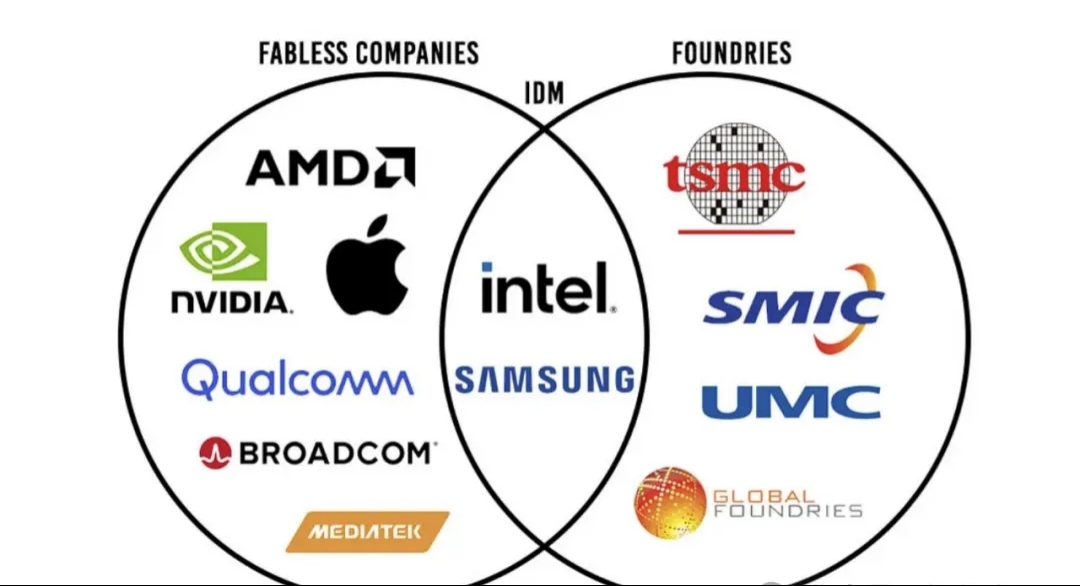
For semiconductor companies, in addition to wafer foundries, there are also packaging and testing foundries, including Riyueguang, Ankao, Changdian Technology, Tongfu Microelectronics, Huatian Technology, Licheng Technology, Silicon Precision, Jingyuan Electronics, Nanmao Technology, Qibang Technology, Zhilu Packaging and Testing, Xinbang Electronics, as well as TSMC, Intel, and Samsung - among which only Ankao and Intel are American companies.
There is also a type of IP core company that is only responsible for designing circuits and not for manufacturing or sales, such as ARM, which is a typical representative.
Finally, there is a type of contract manufacturer that is only responsible for OEM and ODM manufacturing, and is not responsible for branding, sales, and so on. This includes companies such as Foxconn, Compal Computer, Guangda Computer, Heshuo, Wistron, Yingyeda, Deeptech, Luxshare Precision, BYD Electronics, and Weichuangli - the electronic products you buy, such as computers, mobile phones, game consoles, etc., are most likely manufactured by these companies.
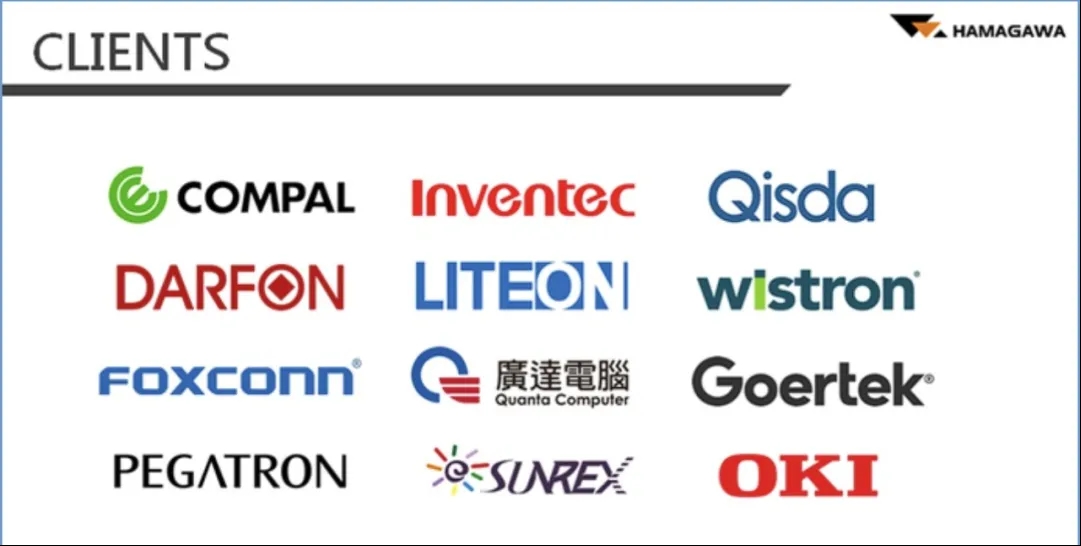
Alright, all I've said is to tell you one thing: due to its complex nature, technology products have always developed towards division of labor, cooperation, and refined production, which is an objective law of development. Unfortunately, the United States, which first proposed this advanced concept, is now taking the lead in destroying everything due to its own interests.
Rising or not rising? The answer is as follows
So, after China officially retaliates against the United States and imposes a 34% tariff on American imported products, will these products actually increase in price? The answer is yes, but very few! According to international trade rules, the origin of goods is usually determined by the "place of substantial processing" (although not absolutely). As far as we know, some of AMD's Ryzen CPUs are produced and tested at TSMC's Arizona factory, while Apple's A16 SOC and Apple Watch's S9 SiP processors are produced and tested at TSMC in the United States. In the current situation, it is highly likely that semiconductor manufacturers, wafer foundries, and packaging and testing factories will coordinate their production deployment and consciously avoid the origin of imported goods in China by adjusting some production capacity, as these wafer foundries and packaging and testing factories are all globally deployed.

As for the production of consumer electronics products, it is even more so. These products are mainly manufactured in China (major contract manufacturers have factories in China), and even if not, the vast majority are produced in the Asian region.
So, most chip and consumer electronics products will not trigger this 34% import tariff (Apple's iPhone is an example, designed by American companies and manufactured in China/India), and the "reason" for being forced to raise prices is difficult to establish. However, there is still a possibility of price increase. Firstly, even if manufacturers make production adjustments, they will still incur some costs, at least there is a possibility of price fluctuations in the short term; Secondly, the procurement of electronic components will also be affected to some extent, as the procurement targets need to be adjusted, and costs are inevitably subject to fluctuations (a motherboard contains over a thousand components); Thirdly, some terminal sales merchants and even agents may take the opportunity to adjust prices.
To sum up, objectively speaking, there is no such thing as a 'must be American' situation. We already have quite a few alternative options, so we have the confidence to launch a tariff counterattack, which has limited impact on ordinary consumers; Secondly, our industrial chain is complete and our production capacity is abundant, giving us sufficient confidence to cope with import tariffs; Thirdly, some agents of electronic products may take the opportunity to adjust prices, and there will inevitably be short-term price fluctuations.
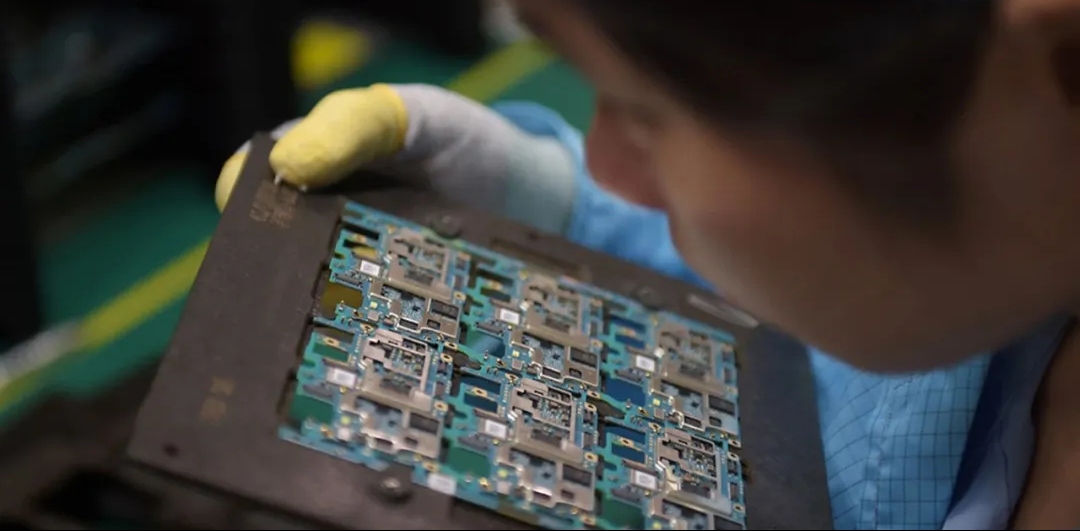
——————This article is excerpted from WeChat official account

